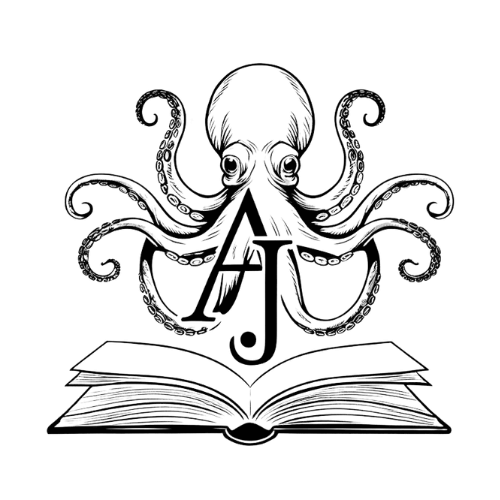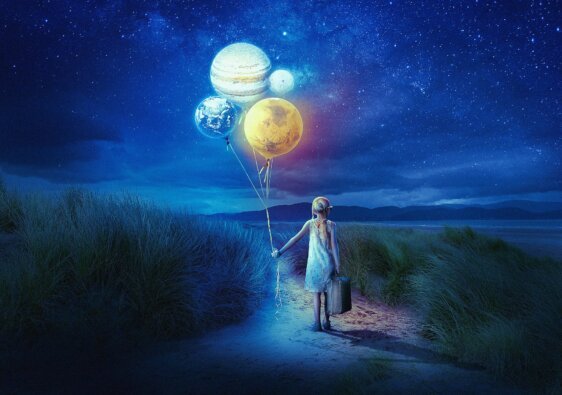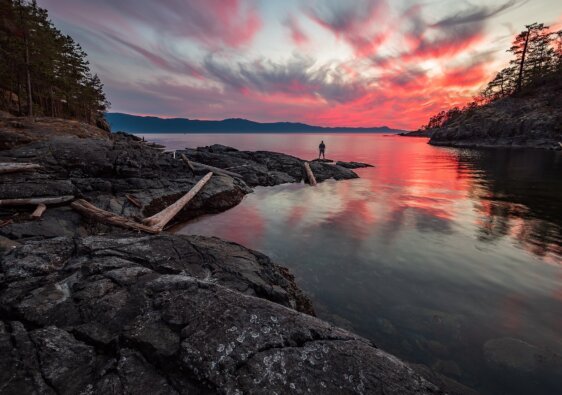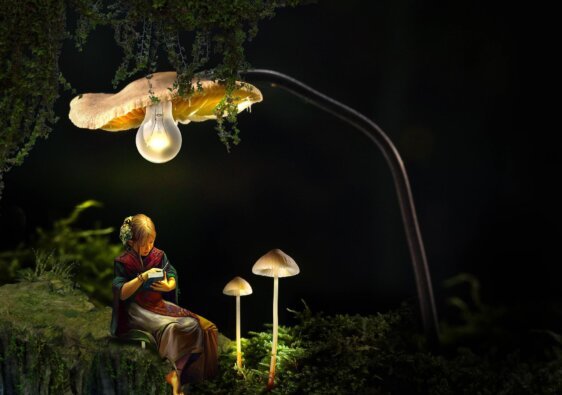
With all the strangeness of the past few years, August 2023 was my first opportunity to attend an in-person writing conference: When Words Collide.
Before I went, I found myself wishing I knew what to expect. How did I choose which presentations and workshops to attend? Would I get lost? Would I actually learn anything new about writing or was the biggest benefit the socializing? What about pitching? Would there be agents to pitch to and how could I prepare for that?
This post is for anyone with similar questions about what a writing conference entails.
Here’s what I learned:
First off, this wasn’t a writing retreat; no cabins in the woods with uninterrupted writing time. This was three days packed with speakers and socializing in the city of Calgary, Alberta.
Held at two buildings of The Delta hotel, there were eight to ten rooms running at a time with different presentations in each. I printed off the schedule before-hand, read the synopsis of each of the presentations, and chose the ones I wanted to go to.
Day 1: Friday
I went to a panel about Deep Space Missions with presenters Dave Worsick, Ron S. Friedman, Guy Immega, and Valerie King. Panels can be hit or miss when it comes to getting anything valuable out of it but this one was GOLD. There were so many moments that blew my mind. Did you know a voyage to Mars can only occur once every two years when the Earth and Mars orbits are aligned? It makes sense when you think about it, but I’d certainly never taken it into consideration. Or that humanity is hampered by gravity on Earth and has a maximum size of spaceship we’d be able to launch into space? Theoretically, humanity could establish a moon base and build bigger ships there because of the decreased gravity and less force required to launch. They also discussed the physiological effects of microgravity on the human body (spoiler: it’s not great!) and the psychological effects of being in isolation or with a relatively small group of people for a prolonged time. Also, in 1966, artificial gravity was tested with two tethered spacecraft spinning around each other. Interesting concepts, engaging and incredibly knowledgeable speakers. I also found out that Ron S. Friedman has a YouTube channel about all things science and sci-fi.
Then I hopped over from the space missions chat to Writing Through the Eyes of a Serial Killer with thriller author Julie Hiner. Crime and thriller aren’t my usual genres but like many people, I’m fascinated by true crime and what makes people tick. This was a really interesting session on what elements many real-life serial killers have in common and how to apply those elements within a fictional story.
Then, following the map, I headed over to the other building and listened to the panel on Science Fiction’s Legacy with Allan Weiss, Patrick Swenson, D.G. Valdron, and Susan Forest. This was a deep dive into where the genre of science fiction began and how it progressed throughout the years. If I’m going to be writing anywhere near this genre, I want to understand it and know where I fit within it. I found this talk interesting with nuggets of useful information. I’m thinking about writing up an essential reading list for science fiction throughout history, though that would take a fair bit of research!
Day 2: Saturday
This day did not go as I’d planned on my colour-coded schedule but that turned out to be a great thing. I started the day with Birth of a Poet (which I wasn’t originally intending to attend but I loved it). This was a panel that spoke about the magic of words and the art of vulnerability. The panelists (Tammy Rébéré, Nancy M. Bell, Sandra Fitzpatrick, Richard Graeme Cameron, and Jennifer Slebioda) shared some of their work and I was grateful to be able to hear their poems.
Then, I went to a session about The Freelancer Mindset by Joshua Pantelleresco. This focused more on freelancing overall rather than on the specifics of freelance writing or editing. The main lesson I got out of this one is that you have to love what you do and believe you have something of value to offer.
Day 3: Sunday
For me, this was my favourite day of the conference. I’d been feeling a little discouraged about my writing and I really needed to find a way to recenter and heal from the things that have been hindering my writing. (Namely, my inner critic telling me that my stories aren’t good enough or are too weird for anyone to want to read them). This day gave me back some of my confidence.
I started the day with What The Heck Is A Book Coach? by Suzy Vadori. Suzy is a book coach who was kind enough to share her expertise on what book coaching is, how having a book coach can help a writer, and how to become a book coach. She was an absolute ray of sunshine and listening to her say that she is “maniacally focused” on helping a writer create (and finish!) the book they WANT to write was really uplifting to me. It’s so easy to fall into the puddle of rules about what a book should be that it’s easy to lose sight of why you’re writing the book in the first place. In many ways, I think this is what’s happened for me with my current work in progress and I’m having to take a good look at the story I originally set out to write.
I went from that session to “Get Rid of Creative Exhaustion and Finally Finish Your WIP” by Sandra Wickham. I’d watched this session last year when I went to the virtual conference but seeing as the title is exactly where I’m at these days, I figured it would be a good one to go to. She focused on holistic health and wellness (physical, emotional, and mental health) and how that translates into being able to write. I left feeling inspired and hopeful.
The last session I attended was “Diagram Your Mystery Plot” with Juanita Violini. I loved this session. It was such a unique way to visualize plot without it becoming convoluted and confusing. In particular for a mystery novel, it ensures that all the important pieces are in place for a solvable crime and loose ends are tied up.
Wrapping Up
I could have attended more sessions (there was one every hour!) but I chose to plan for breaks to avoid the burnout I can get when I’m too busy. My goal this conference was to leave inspired to write and to meet some other writers while I was at it and I do believe I met that goal.
So, to answer my own questions from before the conference:
How Do I Choose Which Workshops to Attend?
I found it essential to plan ahead. With so many possible sessions running each hour within two different buildings, it was worth it to be prepared. Also, I needed to decide what my goal was for the day and for the conference in order to choose my sessions wisely. Did I want inspiration? Tips on writing craft? Help with the business and publishing side of writing? Tips on mindset? What genre was I focused on?
The best way to choose wisely: plan ahead and assess your goals.
Would I get lost?
I ended up going to the writing conference with other writer friends but we split up to go to many of the different sessions. I am notoriously terrible with directions. Navigating two buildings and ten conference rooms was a challenge for me but everyone at the conference was friendly and helpful and we were all there united by a passion for writing. Any time I wasn’t sure if I was heading in the right direction, there were lots of people happy to help out. (In fact, this lead to several funny conversations about where the stairs or elevators might be and resulted in meeting other writers).
Would I Learn Anything New About Writing or Was the Biggest Benefit the Socializing?
The answer to this is a combination of both! I learned some new techniques and different ways to look at my writing process as well as meeting other writers and industry professionals. Both were valuable.
What About Pitching?
I wasn’t at a place with my WIP where I’m ready to pitch it yet, so I didn’t sign up for any of the pitch sessions. Last year, during the virtual conference, there were no virtual pitching sessions but I signed up for the live action slush and the blue pencil sessions. I found that was a unique experience and it resulted in some positive changes to my manuscript but sometimes too much feedback is a bad thing. I found it difficult to write forward without being exceptionally critical of myself. So this year, I avoided the blue pencil sessions and the live action slush because I’m not a point right now where I’m mentally ready to share this draft. I supposed that’s all a long-winded way of saying that I can’t really answer the question about what pitching would be like. But when I reach that point in the future, I’ll be sure to share what I learn with you.
Thanks for reading and I hope you enjoyed this post. If you have any questions, feel free to contact me or ask in the comments section. And if you haven’t already, please subscribe to my monthly newsletter where I share writerly tidbits and notifications of new blog posts.




